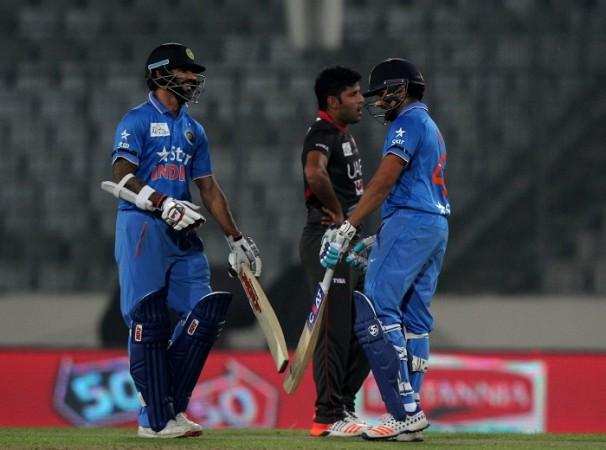
It was all too familiar when India lost three wickets for little in a must-win match against Australia, leaving Virat Kohli, Yuvraj Singh, MS Dhoni and the rest of the lower order to bail the top order out. Rohit Sharma and Shikhar Dhawan came in to this ICC World T20 2016 in top form, but since the tournament has started, that form has deserted them, almost as if the form said, "nah, these slow wickets are no fun to bat on, I'm going out on a holiday."
India might have had to play under testing conditions in the majority of their group matches, but even that cannot be used as an excuse for the openers and Suresh Raina, India's No.4 batsman, to fail pretty much every single time.
MS Dhoni was forced to defend the three batsmen after India got out of jail against Bangladesh last week, but after watching Rohit, Dhawan and Raina throw away their wickets in a pressure chase against Australia, even the skipper will be wondering what is going on.
India limped to the semifinals, thanks to some individual brilliance from Virat Kohli and a brain-fade from the Bangladesh batsmen. Now that they have reached the semis, the three-of-the-top-four-fails trend cannot continue, as Dhoni also admitted at the post-match presentation.
Rohit and Dhawan are too talented to be failing as often as they do. The former, it seemed, had found some consistency to his batting, but in the biggest tournament of them all, that consistency has gone for a holiday as well.
Dhawan has always been the kind of batsman that frustrates more than excites. Consistency is not his forte, but that excuse cannot be used to explain away four failed innings, and a few more before that in Asia Cup, barring that nice knock in the final against Bangladesh.
If the excuse of difficult wickets was used to explain the openers' lack of runs, that excuse will go out of the window if Rohit and Dhawan fail to score in the semifinal of the ICC World T20 against the West Indies.
The Wankhede Stadium in Mumbai, the venue of the semifinal, is the best batting track in India at the moment. In the three matches that were played at the Wankhede in the group stages, runs, runs and more runs were scored, with the six scores reading: 209, 172, 229, 230, 182, 183.
So, there is absolutely no way Rohit and Dhawan can hide behind the "oh the wicket was a difficult one to bat on, all batsmen struggled" excuse come semifinal day against the West Indies. As poor as Raina has been in this tournament, he has at least contributed a little with the ball; the same cannot be said of either Rohit or Dhawan. The two are in there, as the openers, to score runs and get India off to a great start.
Rohit and Dhawan, so far in this World T20, have put together scores of 5, 14, 42 and 23. India cannot cope for too long with such poor opening partnerships – Kohli, after all, even if the knock against Australia might suggest otherwise, is human.
The major issue is, with while Rohit and Dhawan have not put up any big scores, their strike rates have also been pretty poor, which means India's starts at the top have been pretty slow. Rohit averages 11.25 in the tournament at a strike rate of 88.23, while Dhawan's is even worse at 10.75 at 82.69.
It is fine if runs are not scored at a brisk rate as long as Rohit and Dhawan ally together for the first half of the innings and set that nice base for the rest to come and smash, but when they are doing neither, it really is a worry.
Hopefully, on the flat Wankhede deck, the sixes that rain in off the blades of Rohit and Dhawan will blow those worries away.









